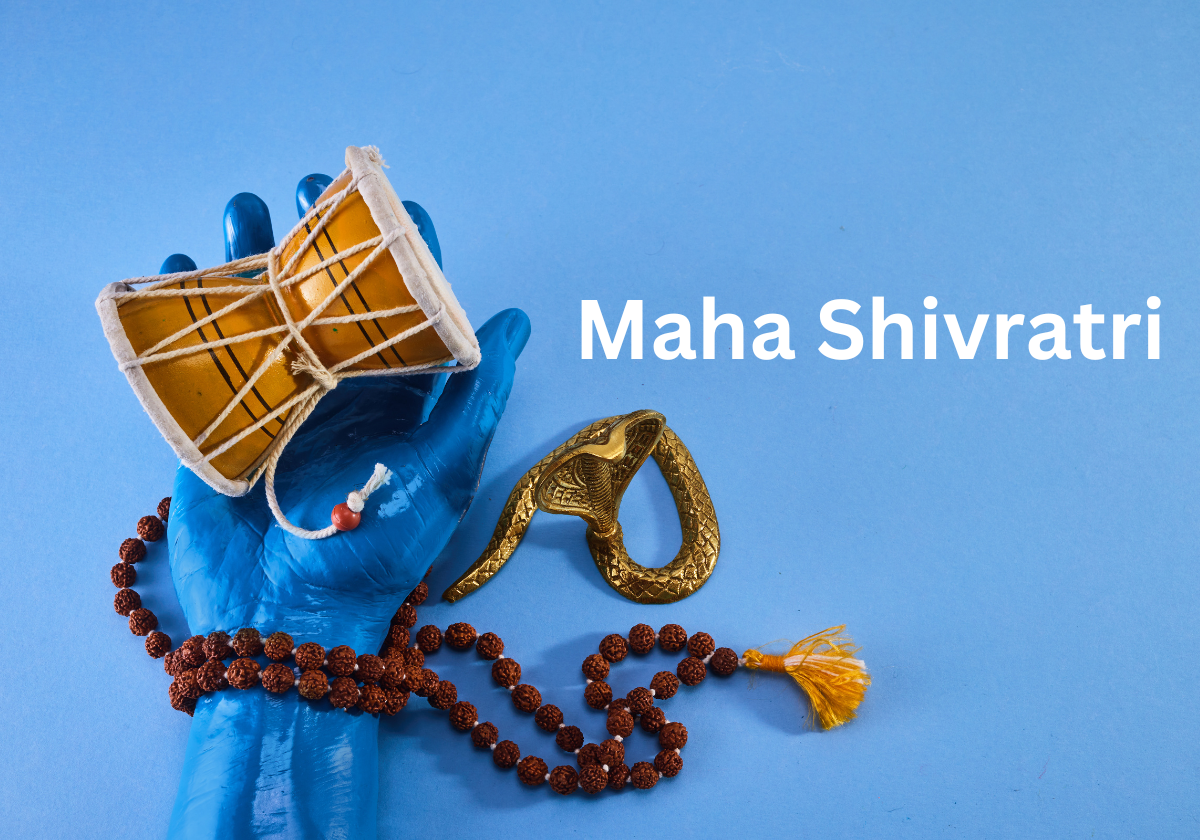Also called “The Great Night of Shiva,” Maha Shivratri is arguably one of the most important festivals in Hinduism. This festival has immense cultural and spiritual significance in India, as it celebrates the new moon day in honour of Lord Shiva, the Holy Trinity’s destroyer and transformer, in the Hindu mythology consisting of Brahma, Vishnu, and Shiva. It is celebrated on the 14th day of the new moon in the month of Phalguna (February or March) and is observed with great devotion by fanatics across the globe.
Importance of Maha Shivratri
Fulfilling the criteria of being a festival, Maha Shivratri is also an event of great spiritual resonance for Hinduism that epitomizes conquering darkness and ignorance in life. It is said that on this very night, Lord Shiva dances creation, preservation, and destruction. Devotees fast, perform rituals, and pray all night to receive blessings from Lord Shiva.
Maha Shivratri is one of the sacred holidays of the Hindu religion. There are several legends associated with Maha Shivratri. Its simplest form encompasses both the wedding of Lord Shiva and Goddess Parvati. In Hinduism, this divine marriage depicts the coexistence of masculine and feminine forces which is a prerequisite for the appropriate functioning of the universe. Another legend states that on this night, Lord Shiva drank the poison that emerged during the churning of the ocean (Samudra Manthan) to save the world. The drink he took turned his throat blue, thus, granting him the name “Neelkanth”.
The festival, also known as “Shivaratri”, is celebrated with utmost happiness and dedication. The rituals and preparations begin one week prior, such as temples being cleaned and decorated; people also start cleaning their homes. Usually, devotees wake up at 5 am, take a shower to purify their bodies, and head to the Shiva Temples to pray. The rituals include:
“In Abhishekam, the shiva lingam is first bathed with milk followed by honey, water, and other sacred substances. Showering the Shiva Lingam with these items is believed to show devotion and purify waters.”
“The leaves of the Bel tree (Bilva Patra) are sacred to Lord Shiva, and are placed before the Shiva Lingam as an offering.”
Fasting: Some devotees follow a strict fast during Maha Shivratri, only eating fruits and drinking milk and water. Some devotees do not even drink water at all, a practice called “Nirjala Vrat.”
Night Vigil (Jagran): Devotees stay awake throughout the night, chanting “Om Namah Shivaya,” singing bhajans, and meditating to receive favours from Lord Shiva.
Lighting Diyas: The lighting of oil lamps symbolizes the removal of spiritual darkness and ignorance from one’s life.
Spiritual Importance
Maha Shivratri is not limited to only observance of rituals; it has profound spiritual meanings. On this night, it is said that the positioning of planets in the northern hemisphere creates a natural upsurge in energy which is favorable for meditation and other spiritual activities. Most followers take advantage of this moment to reconnect with the divinity.
To the yogis and spiritual practitioners Maha Shivratri is viewed to be a very potent night for inner change. It is said that on this night Lord Shiva is at his most merciful and the genuine offer of prayer and meditation can wash away accumulated karma and grant you moksha (liberation).
Cultural Celebrations Across India
Every state of India seems to celebrate Maha Shivratri according to their customs. In holy Varanasi, thousands of worshipers come to the town of Kashi to worship at the Kashi Vishwanath Temple. Tamils carry vessels of water from the sacred river of Cauvery to offer in Abhishekam. The festival is also celebrated in the Jammu and Kashmir region where it’s known as “Herath,” marked by a night of prayers and a feast.
Maha Shivratri is also tied to the story of Kannappa, a South Indian hunter who, out of reverence, plucked out his eyes as an offering before worshipping Shiva Lingam. This emphasizes the notion of true devotion of surrendering oneself to the Lord.
The Universal Message of Maha Shivratri
Maha Shivratri conveys the message above all religions of self-control, submission devotion, and the conquest of goodness over evil. In its celebration, one has to transcend the bonds of attachment and pride, be selfless, and have love and compassion in their heart. The festival reminds us to seek the divine light that is embedded deep within us to drive out the cloud of ignorance.
Maha Shivratri ultimately allows us to pause and reflect on our spiritual selves, something that is easily forgotten in today’s fast-paced world. It fosters a sense of inner calm and balance, which is how we can continue to live full and meaningful lives.
Conclusion
Maha Shivratri goes beyond being a mere religious festival; it is a sign of faith, devotion, and spirituality. The occasion serves to foster community spirit and brings different people together irrespective of their caste, creed, or social standing to pay respect to the Lord Shiva’s divine power. This night is important and as we celebrate it, we should try to empower ourselves with the qualities of Lord Shiva which are compassion, wisdom, and disposition to work toward a world filled with love and peace.
Let us follow the path of Lord Shiva as He guides us toward enlightenment and righteousness. Om Namah Shivaya!

